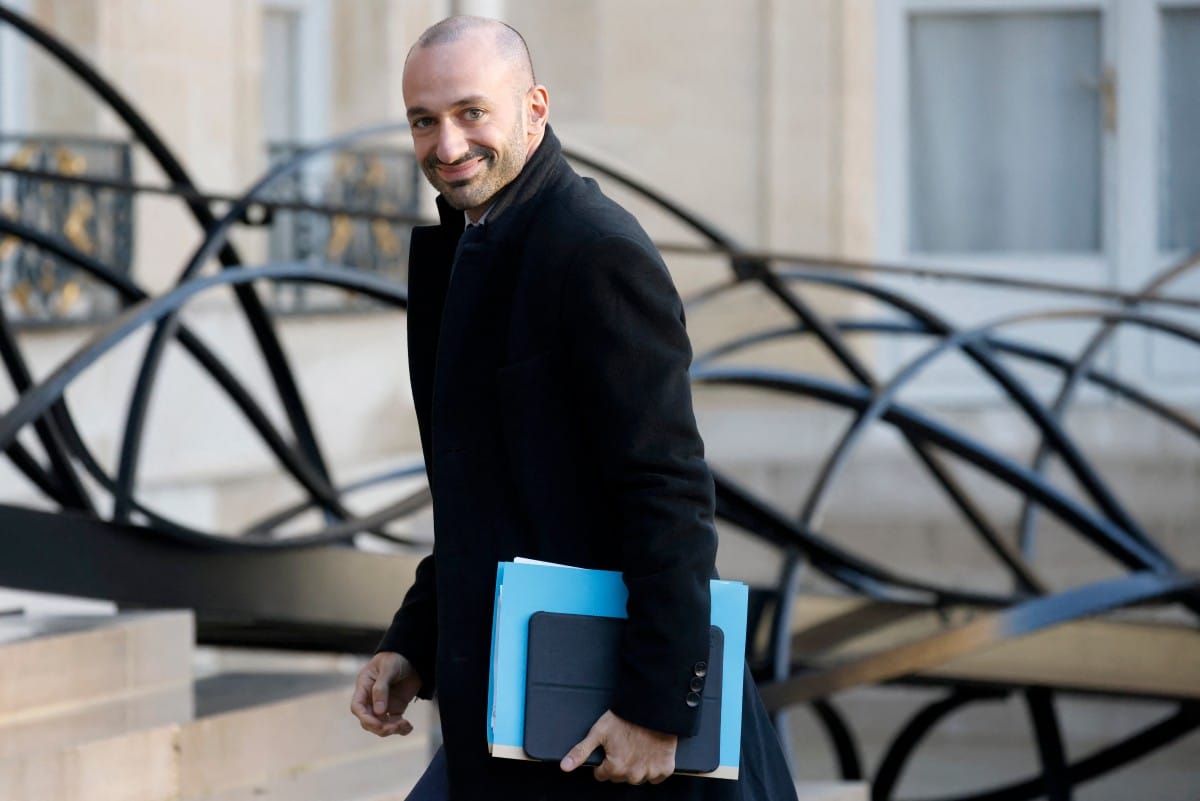EU not an ‘a la carte menu’, members tell Switzerland

French Delegate Minister for Europe Benjamin Haddad arrives at the Elysee presidential palace to attend the weekly cabinet meeting during which France’s 2025 budget will be presented on October 10, 2024 in Paris. Agence France-Presse
GENEVA — EU ministers on Tuesday rejected a push by non-member Switzerland to add a clause to bilateral agreements under negotiation that would allow it to place limits on immigration from the bloc.
The European Union and Switzerland want to seal an agreement to “stabilize and develop” their relations by updating and expanding a set of more than 120 agreements by the end of the year.
Relations have been strained since Bern — without warning — slammed the door on the negotiations with its main trading partner in 2021.
READ: Switzerland expected to cut rates by at least 0.25 points
And while the talks tentatively resumed this year, Switzerland’s efforts to secure an exemption to a central EU tenet — the free movement of people between countries — could make a deal difficult to reach.
Article continues after this advertisement“Europe is not an a la carte menu,” Luxembourg’s Foreign Minister Xavier Bettel said ahead of a meeting of EU Europe ministers in Luxembourg on Tuesday.
Article continues after this advertisement“We have common rules for everyone,” including Switzerland, he said.
READ: Scores of tourists stranded atop of Swiss mountain resort
His French counterpart Benjamin Haddad said his country backed “concluding a deal with Switzerland”, but only if “the criteria of the single market and the European Union’s four liberties” are respected.
Janos Boka, the European affairs minister in Hungary, which currently holds the European Council’s rotating presidency, said there was “positive momentum” in the talks and solid efforts underway to “fulfil our mutual political commitment to conclude the negotiations by the end of the year”.
Immigration wrangle
Switzerland has been part of the EU’s Schengen open-borders area since 2008.
But the country wants a so-called safeguard clause on suspending free movement of people with the EU in certain circumstances, which could include, according to observers, high unemployment or a mass influx of European workers.
“That looks like a very steep mountain path, because it is a request that was not anticipated when the negotiations began,” Rene Schwok, a political science professor at the University of Geneva, told AFP.
Schwok said that the hard-right Swiss People’s Party (SVP), the country’s largest, which is “totally against the free movement of people”, was behind the initial safeguard clause push, but that broader support was growing.
“The new thing is that other parties are now in favour of a clause: parties on the right, the centre-right and even some of the Socialists, because they feel the public thinks immigration is too high,” he said.
Around a quarter of Switzerland’s residents are foreigners. Of those, 72 percent are from the EU or from Switzerland’s three fellow European Free Trade Association countries (Iceland, Liechtenstein and Norway).
“People are quite sick of mass immigration,” SVP chief Marcel Dettling said Saturday.
Compromise?
Since 2008, Brussels has been demanding an overarching accord to harmonise the legal framework of its tangle of agreements with Switzerland.
The renewed negotiations since March have taken a sectorial approach, aiming to update five agreements — free movement of people; land transport; air transport; agriculture; and mutual recognition of conformity assessments — and to forge new accords on electricity, food safety and health.
Switzerland’s participation in European programmes, including research, culture and sports, is also at stake, while the EU is demanding the opening of the Swiss rail market.
“We want all of the agreements with Switzerland to finally be updated,” Sven Giegold, Germany’s state secretary for the economy, said Tuesday.
“Switzerland is situated in the middle of Europe,” he said, adding that relations could no longer be organised through “contracts put in place decades ago”.
On the issue of free movement, he said “compromise” could be possible, adding that Switzerland’s concerns over pressure on wages “is something that must be taken seriously”.
Status quo or slow erosion?
Compromise will also be needed on other topics, including the treatment of seconded workers and social benefits paid to foreigners.
Brussels meanwhile wants Switzerland to pitch in more to its Cohesion Fund, aimed to reduce economic and social disparities in the bloc.
Even if the two sides manage to agree, the Swiss parliament would have its say on any outcome, as would Swiss voters in a referendum.